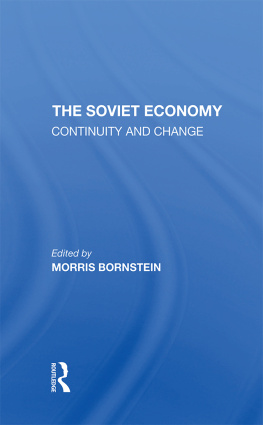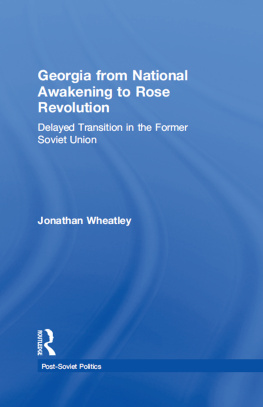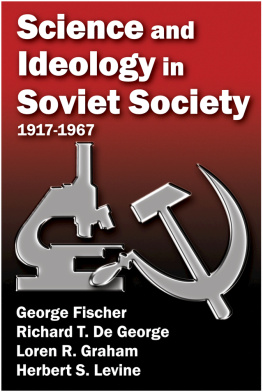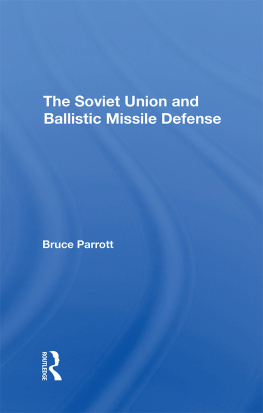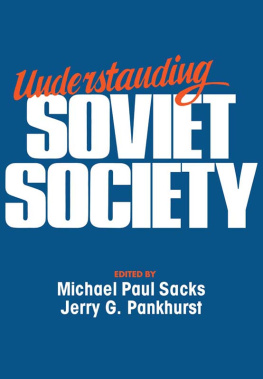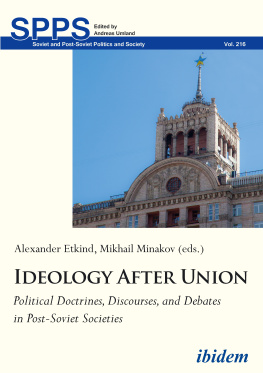
The Soviet Union and Global Environmental Change
This book argues that the Soviet Union was a highly influential actor in furthering understandings of society-nature interaction on the international stage and played a key role in helping to shape, conceptualize and assess the relationship between humankind and the Earth system. It considers how humankind's capacity to affect physical and biological systems at a global scale was acknowledged and studied by Soviet scientists, discusses how the interaction between Soviet and Western scientists stimulated the development of new technologies and insights, which simultaneously facilitated a more profound understanding of the Earth's physical and biological systems, and explores how Soviet scientists drew upon pre-revolutionary intellectual traditions in order to make sense of society-nature interaction and did so in collaboration with a range of international initiatives. Overall, the book provides a deep analysis of how Soviet scientists conceptualized society-nature interaction and influenced the understanding of global physical and biological systems. Furthermore, it is argued that this intellectual legacy remains of importance today with respect to the activities of Russian science and contemporary global environmental challenges.
Jonathan D. Oldfield is Reader in Russian Environmental Studies in the School of Geography, Earth and Environmental Sciences at the University of Birmingham, UK.
Routledge Studies in the History of Russia and Eastern Europe
28 Women's Experiences of Repression in the Soviet Union and Eastern Europe
Kelly Hignett, Melanie Ilic, Dalia Leinarte and Corina Snitar
29 Leadership and Nationalism in Azerbaijan
Ali Mardan bey Topchibashov, Founder and Creator
Jamil Hasanli
30 Everyday Soviet Utopias
The Planning, Design and the Aesthetics of Developed Socialism
Anna Alekseyeva
31 Tourism and Travel during the Cold War
Negotiating Tourist Experiences across the Iron Curtain
Sune Bechmann Pedersen and Christian Noack
32 Soviet Women-Everyday Lives
Melanie Ilic
33 Late Tsarist Russia, 1881-1913
Beryl Williams
34 Duelling, the Russian Cultural Imagination, and Masculinity in Crisis
Amanda DiGioia
35 Russian Peasant Bride Theft
John Bushnell
36 The Soviet Union and Global Environmental Change
Modifying the Biosphere and Conceptualising Society-Nature Interaction
Jonathan D. Oldfield
For a full list of available titles please visit: https://www.routledge.com/Routledge-Studies-in-the-History-of-Russia-and-Eastern-Europe/book-scries/SE0329
The Soviet Union and Global Environmental Change
Modifying the Biosphere and Conceptualizing Society-Nature Interaction
Jonathan D. Oldfield
First published 2021
by Routledge
2 Park Square, Milton Park, Abingdon, Oxon OX14 4RN
and by Routledge
605 Third Avenue, New York, NY 10158
Routledge is an imprint of the Taylor & Francis Group, an informa business
2021 Jonathan D. Oldfield
The right of Jonathan D. Oldfield to be identified as author of this work has been asserted by him in accordance with sections 77 and 78 of the Copyright, Designs and Patents Act 1988.
All rights reserved. No part of this book may be reprinted or reproduced or utilised in any form or by any electronic, mechanical, or other means, now known or hereafter invented, including photocopying and recording, or in any information storage or retrieval system, without permission in writing from the publishers.
Trademark notice: Product or corporate names may be trademarks or registered trademarks and are used only for identification and explanation without intent to infringe.
British Library Cataloguing-in-Publication Data
A catalogue record for this book is available from the British Library
Library of Congress Cataloging-in-Publication Data
A catalog record for this book has been requested
ISBN: 978-0-367-74588-2 (hbk)
ISBN: 978-0-367-74592-9 (pbk)
ISBN: 978-1-003-15861-5 (ebk)
Typeset in Times New Roman
by Apex CoVantage, LLC
For Naimeh
Contents
- 2 Shaping human-nature interaction: Soviet Union and the Great Acceleration
- 3 Understanding the natural environment and the growing influence of humankind on the Earth system
- 4 Measuring and assessing the natural environment
- 5 Russia and society-nature interaction in the 21st Century
- 6 Conclusion
- 2 Shaping human-nature interaction: Soviet Union and the Great Acceleration
- 3 Understanding the natural environment and the growing influence of humankind on the Earth system
- 4 Measuring and assessing the natural environment
- 5 Russia and society-nature interaction in the 21st Century
- 6 Conclusion
Guide
The writing of this book was made possible by a Leverhulme Research Fellowship 2018-2019, for which I am very grateful. The book is primarily an attempt to open up debate around the role and significance of the Soviet Union and its scientific traditions with respect to current understanding of nature-society interaction at the global level. While there has been a growing volume of excellent research devoted to Soviet and Russian socio-environmental issues published during the course of the last two decades, the Soviet experience remains a rather subdued narrative within broader scholarship devoted to global socio-environmental change and remains typically wedded to images of wide-scale environmental degradation. A key impetus for the book is therefore a desire to counter the dominance of this narrative in order to draw attention to the originality and sophistication of environmental thought and associated practice evident within sections of the Soviet scientific academy.
My interest in this general area stretches back to doctoral work, which explored changing society-nature relations within the context of Russia's turbulent 1990s. More specifically, it was sparked by a relatively obscure reference to the ideas of the Russian geochemist Vladimir Vernadsky embedded within the text of the 1996 Presidential Decree on Russia's transition to sustainable development. I would encounter Vernadsky's name repeatedly during subsequent years in connection with Russia's contemporary engagement with sustainable development as well as the evolution of various branches of the physical and natural sciences. Emergent findings from this broader research, funded by grants from the UK's Arts and Humanities Research Council (Ref: AH/G011028/1; AH/P004431/1) and Economic and Social Research Council (Ref: ES/G027196/1), helped to draw attention to the significance of Vernadsky's ideas domestically as well as on the international stage and underlined their potential to shape discussion concerning the Earth's natural systems and by extension humankind's growing influence as a global environmental actor. Vernadsky's work forms an influential backdrop to much of the book's narrative. The following chapters thus bring together elements of this earlier funded work in order to advance the broader agenda noted earlier. Chapter 3 draws directly from previously published work (in collaboration with Denis Shaw) on Vernadsky and his ideas concerning the biosphere and noosphere. The author is grateful to both Elsevier and Cambridge University Press for permission to draw from sections of this published work including: Oldfield, J.D., and Shaw, D.J.B., 2006, 'V.I. Vernadsky and the noosphere concept: Russian understandings of society-nature interaction',


